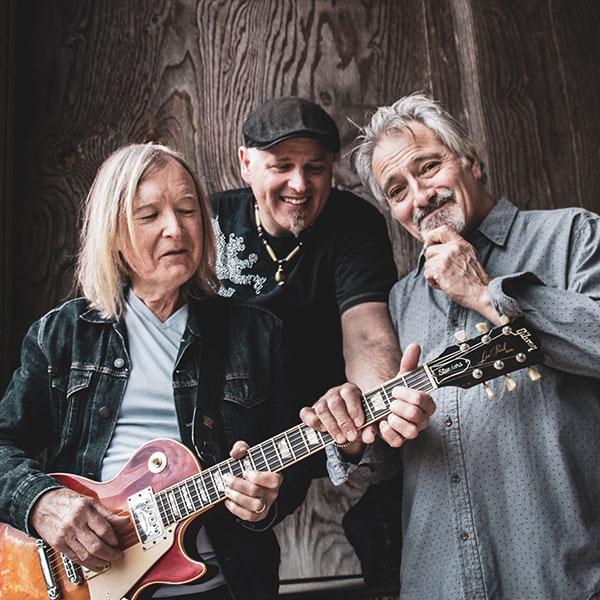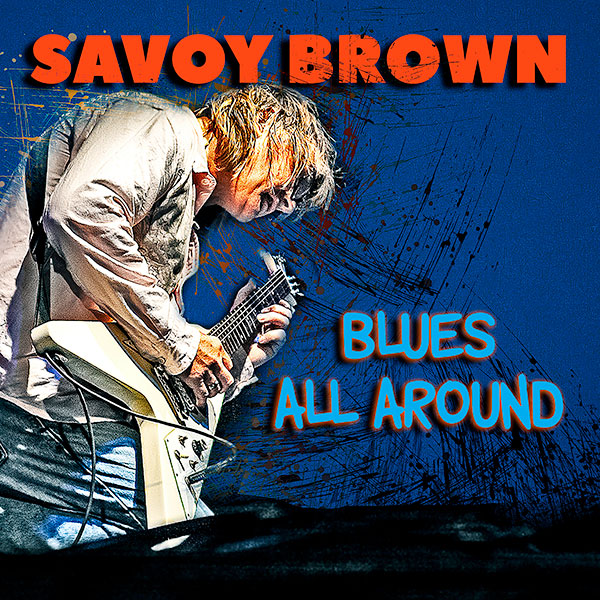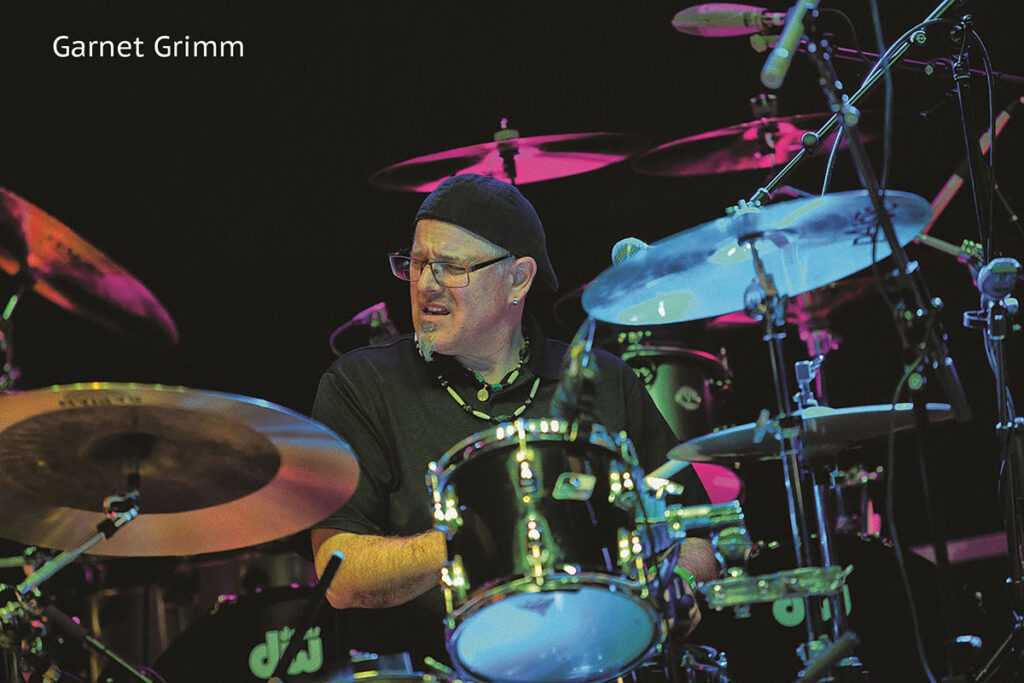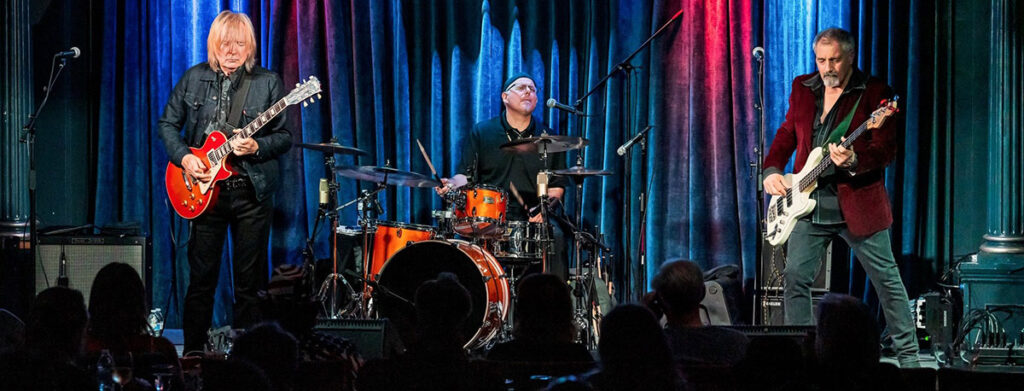
Leaving the incredible prowess of Jimi Hendrix out of the discussion, many music enthusiasts regard Jeff Beck or Eric Clapton as rock’s greatest guitarist. I believe a far less known British axe slinger belongs in such exalted company.
Kim Simmonds, who was born in Wales and spent the past 30 years living in upstate New York, formed Savoy Brown in 1965, and despite numerous personnel changes, blues-rocked and boogie-rocked the band until succumbing to cancer at age 75 in December. His final album, Savoy Brown’s Blues All Around, was recorded last year and released in February, and it’s a testament to his greatness … until the very end.
Listening to Simmonds sing and play guitar on the album, there’s no hint that his life was ending. He is powerful vocally, and, as usual, his guitar playing is stunning and poignant. Dare I say it is one of the best albums in the 58-year, 42-album history of Savoy Brown?
The album was recorded differently from the group’s previous albums, because Simmonds was battling colon cancer and unable to join his bandmates — bassist Pat DeSalvo and drummer Garnet Grimm — in the studio. Yet, DeSalvo tells me, “Kim had exact vision on what he wanted it to sound like.”
“It was a process we never took before,” recalls DeSalvo, who first played with Simmonds in 2000 and officially joined Savoy Brown with Grimm in 2009. “Normally, we would get together and work on the material. Due to Kim’s illness, that was not possible. So, he sent us the material, and we worked on it separately. Kim had a vision about what he wanted and gave us a good blueprint to work with. We went to the studio at the end of May and spent several days working on it. Unfortunately, Kim was at the Roswell Park Comprehensive Cancer Center in Buffalo the first day of recording.”

Simmonds was battling Stage 4 signet ring cell carcinoma, a rare form of colon cancer that was diagnosed in September 2021 and often goes undetected until it’s too late. He was also suffering from peripheral neuropathy, a side effect from chemotherapy that deadened finger and hand nerves, making single string playing difficult and forcing him to play slide guitar throughout the album.
While recording, Simmonds seemed “to have a sense of urgency, but Kim was often like that with business,” Grimm recalls. “When he was working on something, it consumed him. He was very consistent with his expectations regarding new material and organizing a record. He had done it so many times that he knew exactly what he had to do and how to make it come to fruition.”
The new album “is a huge landmark — a creative giant has been silenced,” Grimm adds.

Blues All Around “is the last record we were able to record together as a trio,” DeSalvo says. “As far as the significance, Kim led a storied life and left an impressive catalog. He was always trying to give the fans more. He did that with this record.”
As a teenager, I owned some Savoy Brown records, including 1970’s Looking In and early ‘70s albums Hellbound Train, Lion’s Share and Jack the Toad. I enjoyed them, but — maybe because blues rock was not my first passion — I was never fully hooked on the band’s music.
Then, many decades later, I saw Savoy Brown live for the first time…and I am still mesmerized by that performance. The date was March 7, 2014, in a small theater in Bay Shore, Long Island, and, despite only a handful of people in the audience, Simmonds blew my mind with a show that might have shaken the rafters of Madison Square Garden.
Simmonds fired explosive riffs and solos that Otis Rush and other blues masters would have appreciated, and the group’s powerful boogieing was relentless. At age 67, Simmons got down on his knees and then on his back in the middle of Savoy Brown’s classic title song “Hellbound Train,” bending notes like Turkish taffy. And, though Savoy Brown had utilized various lead singers throughout the group’s history, Simmons masterfully handled the lead vocals. His vocals were expressive, and his phrasing was on the money.

I attended two subsequent Savoy Brown shows in Connecticut, and Simmonds, DeSalvo and Grimm performed exhilarating shows. After a Hartford show, I spoke with Simmonds, and he was gracious, humble and kind without any rock-star airs. My conversation was brief, but I apparently grasped the essence of the man.

“Kim was very genuine, open and honest,” Grimm says, “with a large dose of English humility and quiet reserve. This was a man who could have talked nonstop about the things he’d done and seen — how he was on the cutting edge of rock and roll and what was happening, particularly in the 1960s and early 1970s. He could have talked nonstop about the musicians he knew and influenced or the careers he helped launch. But, when you spoke with him or met him out on the street, there was none of that. He was just Kim.”
Grimm says he and DeSalvo became very close friends with Simmonds during the nearly 14 years they played together as Savoy Brown.
“Kim was always very interested in your life, your kids and family,” Grimm says. “Kim would often call me on Tuesdays when we were not on the road, and that was our catch-up day. We could talk about anything for an hour — life, weather, baseball English or American football — but it always seemed to end with music talk. The loss of this incredible friend and bandmate is still very raw and hard to believe. I understand the circle of life happens, but it does not always feel very good. I am filled with much gratitude to have been given the opportunity to get close to this creative giant — a true musical pioneer.”
I ask DeSalvo how he rates Kim’s guitar playing against his British contemporaries — the Big 3 former Yardbirds, Clapton, Beck and Jimmy Page.
DeSalvo adds four other “greats” — Alvin Lee, Gary Moore, Johnny Winter and Joe Bonamassa — before stating, “Kim stood neck and neck with them all. You might say I am biased, so drop the needle, put in the CD and let the people be the judge.”
(Part 2 of this tribute to Kim Simmonds and Savoy Brown next month will include my 2015 interview with Kim, the most memorable concerts he attended and more insights from Pat DeSalvo and Garnet Grimm about their years in Savoy Brown and the best musicians they have ever heard.)

